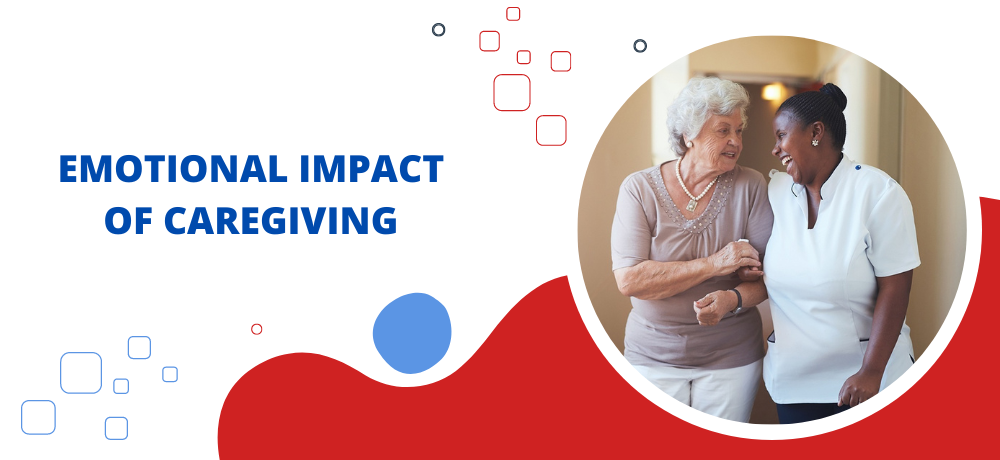Emotional Impact of Caregiving

As we grow older, we may require assistance with everyday activities, such as bathing, dressing, and eating. For seniors who need this kind of support, family members or professional caregivers are often the ones who provide it. While caregiving can be a rewarding experience, it can also be emotionally challenging. In this blog post, we'll explore the emotional impact of caregiving and offer some tips for caregivers to manage their feelings.
1. The Emotional Toll of Caregiving
Caregiving can be an emotionally taxing experience. It's common for caregivers to experience a range of emotions, including stress, anxiety, guilt, and even depression. Providing care for a loved one can be physically and mentally demanding, especially if the caregiver has other responsibilities, such as work or taking care of their own family. The emotional toll of caregiving can lead to burnout, a state of emotional, physical, and mental exhaustion that can make it difficult for caregivers to continue providing care.
2. Coping Strategies for Caregivers
If you're a caregiver, it's essential to take care of yourself as well as the person you're caring for. Here are some coping strategies that can help:
a. Seek support: Joining a caregiver support group can be a helpful way to connect with others who are going through a similar experience. You can share your feelings and get advice from others who understand what you're going through.
b. Take breaks: It's essential to take regular breaks from caregiving to rest and recharge. Even short breaks can make a big difference in how you feel.
c. Practice self-care: Take care of your physical and emotional health by eating well, getting enough sleep, and engaging in activities that you enjoy.
d.Set boundaries: It's okay to say no to additional responsibilities or ask for help when you need it. Setting boundaries can help you avoid burnout and maintain your own well-being.
3. Seeking Professional Help
If you're struggling with the emotional impact of caregiving, it may be helpful to seek professional help. A therapist can provide you with a safe space to talk about your feelings and offer coping strategies to manage stress and other emotional challenges.
Caregiving can be a challenging experience, but there are resources available to help. Supportive Living Consumer Direct can provide you with the support you need. Serving across St. Louis, St. Louis County, St. Charles and the surrounding areas. Contact us today to get the help you deserve